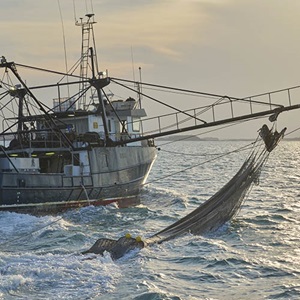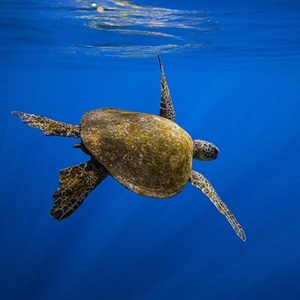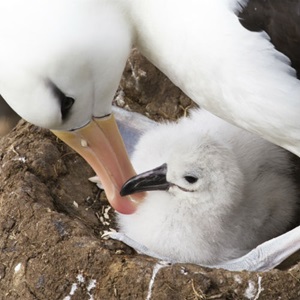Sustainably managing our natural resources around the UK and Ireland will mean that our oceans remain productive, resilient and adaptable to environmental changes.
What is biodiversity?
Biodiversity is both the variety and abundance of life on our planet. It includes all the different animals, plants and micro-organisms living on Earth and in the ocean, from tiny ants to giant whales.
Why is marine biodiversity important?
Biodiversity allows nature to be productive, resilient and adaptable to environmental changes. These might be caused by climate change, the spread of disease, pollution, invasive species, overfishing or other human-related impacts.
We say an ecological system is resilient if it keeps functioning even when the population of a species declines, or a species becomes extinct. A functioning ecosystem means the natural processes are working effectively, including those providing goods and services to humans, such as storing carbon, filtering water or food to eat.
Biodiverse and resilient marine ecosystems are made up of a large and abundant variety of different species. Each species in the ocean has a particular role to play; from tiny krill at the bottom of the ocean food web; providing essential omega-3 oils for humans, and as food to ocean mega-fauna like whales, to ocean apex predators such as bluefin tuna that prey on smaller fish and keep their populations in check.
The more biodiversity becomes depleted, the less nature can provide the food, economic and cultural benefits it currently provides to humanity. But even if humans disappeared tomorrow, biodiversity would still remain vital to the planet’s success.
Does overfishing harm biodiversity?
Yes, fishing that is unsustainable or destructive can seriously impact biodiversity. Around 37.7% of the world’s fish stocks are currently overfished, and if this continues there will be fewer fish in the ocean for future generations as well as less biodiversity.
Overfishing not only impacts the fish that are targeted for harvesting but also other marine life that interact with fishing vessels. Oceanic shark and ray species have declined by 71% since the 1970s, with overfishing the primary cause of decline.
Bycatch – or unwanted catch – is one of the leading threats to marine biodiversity. It is estimated that 9.1 million tonnes (around 10% of annual catches) are discarded by marine commercial fisheries each year.
How does the MSC Program help protect marine biodiversity?
The MSC program incentivises sustainable fishing practices that ensure target stocks are healthy, fisheries are well managed and the impacts on biodiversity are actively minimised.
A key component of the MSC Fisheries Standard is assessing the fishery’s impact on the wider biodiversity and ecosystem. Many fisheries that enter the MSC program are given conditions of certification, which are a series of improvement goals they must meet to keep their certificate.
From 2018 to 2021, these conditions led to a total of 372 improvements. This includes 66 improvements benefitting ecosystems and habitats and 134 improvements benefitting endangered, threatened and protected species and reducing bycatch among others.
Supporting global biodiversity conventions with ocean data
The MSC program also contributes to the work of United Nations’ (UN) bodies such as the Food and Agriculture Organization (FAO) in several ways. Data from the MSC is used by the UN Environment Programme and other intergovernmental organisations to track progress towards international goals to end overfishing and protect biodiversity. In 2020, the MSC’s contribution to sustainable fishing and progress towards biodiversity goals was acknowledged by the UN in its Post-2020 Framework for Biological Diversity.
How Sustainable Fishing Protects Ocean Biodiversity
How can seafood consumers help support marine biodiversity?
By using the blue MSC ecolabel, brands, retailers, chefs are rewarding responsible fishing operations and incentivising others to improve. When you choose to eat sustainably certified, wild-caught MSC labelled seafood, you are helping to support a healthier, more resilient and productive ocean. There are thousands of MSC labelled products sold by retailers and restaurants around the world, making it easy to find sustainably sourced seafood.
Head to our Global website for further biodiversity and fishing case studies

Fishery innovations that drive ocean biodiversity research
From mapping seabed floors for vulnerable habitats to trialling innovative wildlife bycatch reduction devices, fisheries play a key role in collecting data that can better protect marine biodiversity.

How MSC certification drives environmental best practice
Dozens of fisheries certified to the MSC’s sustainability Standard continue to improve their performance in areas such as bycatch and endangered, threatened and protected species, even after they have gained certification.

Beating bird bycatch
Smarter fishing practices dramatically reduce the number of seabird deaths.
